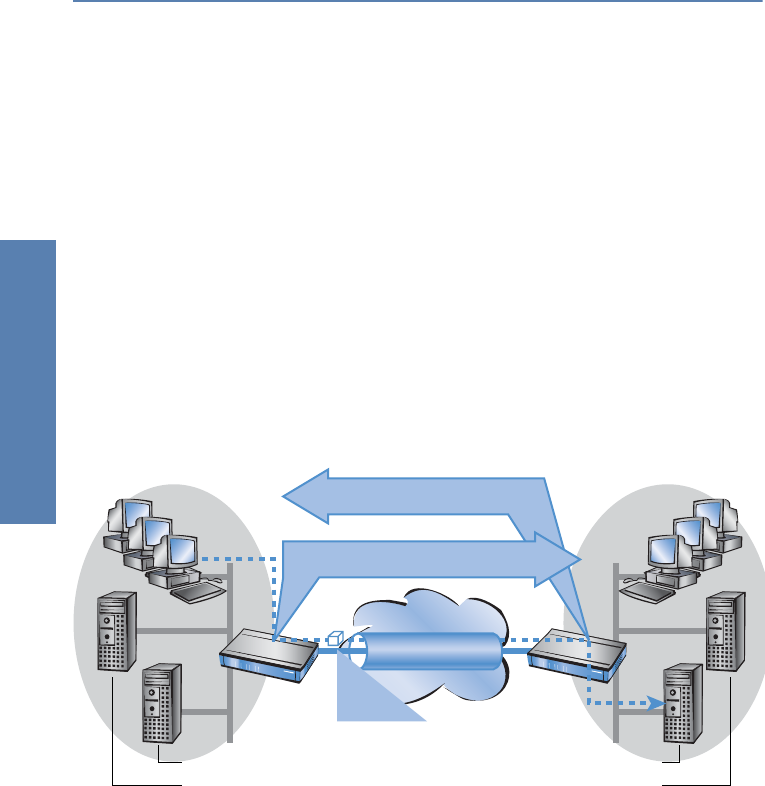
LANCOM Reference Manual LCOS 3.50 ̈ Chapter 4: Management
38
Management
the defined translation range. An “inbound” address mapping, whe-
reby the source address is translated (instead of the destination
address), needs to be realized by an appropriate “outbound” address
translation on the remote side.
4.1.1 Application examples
The following typical applications are described in this section:
̈ Coupling of private networks utilizing the same address range
̈ Central remote monitoring by service providers
Network coupling
An often appearing scenario is the coupling of two company networks which
internally use the same address range (e. g. 10.0.0.x). This is often the case,
when one company should get access to one (or more) server(s) of the other
one:
In this example network servers of company A and B should have access over
a VPN tunnel to the respective other network. All stations of the LAN should
have access to the server of the remote network. For the time being, there is
no access possible to the other network, because both networks use the same
address range. If one station of the network of company A wants to access
server 1 of company B, the addressee (with an address from the 10.0.0.x net-
work) will be searched within the own local network, and the inquiry even
does not reach the gateway.
N:N mapping to 192.168.1.x
N:N mapping to 192.168.2.x
Gateway
Gateway
Server_A1: 10.0.0.1
Server_A2: 10.0.0.2
Server_B1: 10.0.0.1
Server_B2: 10.0.0.2
VPN tunnel
Target: 192.168.2.1
Network of firm A:
10.0.0.x
Network of firm B:
10.0.0.x


















